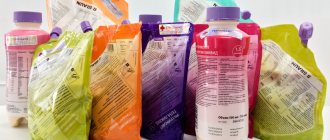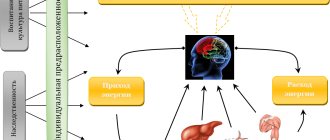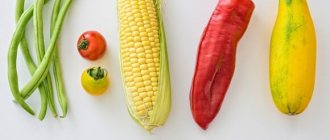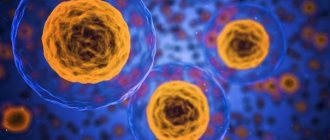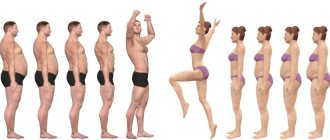Vitamin supplements for vegetarians and vegans include vitamins, minerals and active compounds in large quantities, often exceeding the daily requirement. However, vegetarians who eat properly and fully do not usually need additional sources of useful elements; they get plenty of nutrients from plant and dairy products. But vegans, who eat exclusively plant-based foods and do not consume milk, eggs, or even honey, may experience a deficiency of certain nutrients. Such people definitely need to take special vitamins for vegetarians and vegans.
What vitamins do plant-based dieters lack?
Strict vegetarians often have a lack of omega-3 fatty acids, iron, calcium, and vitamins B12 and D in their bodies.
- Omega-3 fatty acids. They prevent the development of atherosclerosis, normalize the concentration of lipids in the blood, have an anti-inflammatory effect, optimize blood density, and prevent the occurrence of mental disorders.
- Iron. Participates in the movement of oxygen in the blood. When a microelement is deficient, a person’s immune system is weakened, anemia develops, and chronic fatigue occurs.
- Calcium. Strengthens bones, maintains healthy muscles, dilates blood vessels, normalizes the nervous system, regulates the synthesis of enzymes and hormones.
- Cyanocobalamin or vitamin B12. Participates in the formation and regeneration of cells, protects the nervous system from the effects of negative factors. With a lack of substance, weakness, depression, chronic fatigue, weight loss, lack of appetite, disruption of the intestinal tract, weakening of memory and mental abilities, and anemia are observed.
- Calciferol or vitamin D. With a lack of substance, rickets develops in children, and skin pathologies are observed in adults.
Acne on the cheeks, thighs, arms and buttocks
Reddish or white acne-like rashes appear on the skin when there is a lack of vitamins A and D, as well as essential fatty acids. You can get rid of them if:
- limit your intake of trans fats and saturated fats;
- season food with vegetable oils - olive, corn, flaxseed, etc.;
- include salmon meat, sardines, nuts, red and orange vegetables in your diet.
Beta-carotene contained in vegetables will allow the body to synthesize vitamin A. To compensate for vitamin D deficiency, you need to spend more time outdoors in the sun.
Where does a person get vitamin B12?
Cyanocobalamin is synthesized by bacteria. In herbivores, the synthesis of the substance occurs in the rumen or in the last section of the small intestine. The vitamin accumulates mainly in the liver, kidneys, and heart. A predator, eating a herbivorous prey, receives cyanocobalamin from its organs. Humans, being anatomically a herbivorous creature, are forced to obtain vitamin B12 from the following sources:
- animal products;
- the contents of one’s own large intestine while ignoring food hygiene;
- pharmaceuticals.
Why is the vitamin not synthesized in humans in the small intestine, like in herbivores? It's all about evolution. Human ancestors were originally herbivorous creatures, but expanded their diet to include meat. Over thousands of years of a meat diet, the human intestine has adapted to uncharacteristic food and stopped producing the vitamin in the small part, as it began to receive it in abundance with food. But it should be noted that cyanocobalamin is still synthesized in the large intestine, but is not absorbed into the blood due to the absence of glycoproteins there that regulate the absorption process. Vitamin B12 can only be absorbed into the blood in the small intestine, but there are no bacteria forming the substance there.
Some raw foodists claim that as a result of returning to a natural diet, their small intestines began to work correctly, producing cyanocobalamin in optimal quantities. But it is impossible to verify the veracity of the claims of raw foodists. These people are probably being disingenuous, secretly using pharmacy vitamins, misleading their followers.
Difference between plant and animal foods
As nutritionists note, the differences between plant and animal foods are quite significant. But, unfortunately, they are not completely interchangeable. While most of the vitamins and minerals contained in animal products can be replenished with plant foods, the deficiency of some of them cannot be compensated for in this way.
For example, vitamin B12, contained in optimal quantities in eggs and milk, cannot be obtained from plant foods, so there is a need to resort to the help of complex vitamins and dietary supplements.
Signs of vitamin B12 deficiency in the body
Vitamin B12 accumulated in the body is consumed gradually. Therefore, strict vegetarians who refuse to take synthetic cyanocobalamin do not experience health problems associated with vitamin deficiency immediately, but several years after switching to plant foods. When there is a lack of vitamin B12 in the body, anemia occurs, accompanied by the following symptoms:
- weakness, drowsiness, chronic fatigue;
- dizziness, tinnitus;
- memory impairment;
- depression;
- weakened vision;
- tachycardia;
- difficulty breathing;
- disturbances in the functioning of the stomach, lack of appetite;
- inflammation of the mucous membranes of the tongue, bleeding from the gums;
- pale skin;
- numbness of the limbs;
- impaired coordination of movements.
Where can vegetarians get vitamin B12?
Vitamin B12 is not found in plant foods, but is present in soil and human feces. It is clear that a civilized person will not eat dirty, uncleaned vegetables and root vegetables, and will not pick through his own feces, as primates do. But where can a vegan get cyanocobalamin? To avoid vitamin B12 deficiency, a strict vegetarian must properly organize their diet.
- Vegetarians should eat foods containing vitamin B12 2–3 times a day: eggs, milk, dairy and fermented milk products. Vegans have to buy products artificially enriched with cyanocobalamin.
- People who adhere to a plant-based diet must periodically take vitamin complexes that include vitamin B12.
- It is not advisable for vegans to take large amounts of folic acid-based medications, since this substance makes cyanocobalamin deficiency invisible.
Strict vegetarians should have their blood tested annually for vitamin B12 levels to prevent anemia. Especially for vegans, stores today sell a huge number of products enriched with cyanocobalamin. This:
- vegetable oils;
- soy milk;
- corn breakfasts;
- yeast extracts;
- vegetable bouillon cubes;
- Soy meat.
Prevention of vitamin deficiency
Vegetarians are well aware that they are at risk for vitamin deficiency. And those for whom this is not an empty phrase try to prevent it in a timely manner, so as not to waste money and time on treatment later. What exactly does it consist of:
- Once a year, undergo a medical examination for the presence of diseases. Treat them when detected.
- Buy vegetables and fruits from domestic farmers. It’s a good idea to check them first for the presence of harmful substances. Transport in a wooden container. Correctly process: throw into already salted boiling water. These measures will allow you to preserve maximum vitamins in plant foods.
- In spring and autumn, take preventive vitamin complexes.
It is also necessary to keep in mind the features of preventing vitamin B12 deficiency:
- since alcohol and nicotine increase the body’s need for it, smoking and alcohol should be abandoned;
- carry out deworming of the body, since parasites often provoke cyanocobalamin deficiency;
- in the postoperative period, undergo regular tests (its absorption is impaired during surgical interventions);
- get tested for gastrointestinal diseases and treat them.
The problem of vitamins in the diet of vegetarians interests many. There are different points of view regarding its solution. You need to understand that this primarily concerns vegans and is not so acute for lacto-ovo vegetarians. By leading a healthy lifestyle, following a balanced and varied (even plant-based) diet, and timely prevention of vitamin deficiency can be avoided. And at the same time, it is hardly worth giving up ready-made vitamin complexes - there will be no harm from them, and they are guaranteed to reduce the risk of disease.
Where do vegetarians get omega-3 fatty acids?
The human body must have sufficient amounts of both omega-3 and omega-6 fatty acids. Modern people consume omega-6 not just in sufficient quantities, but in excess. But omega-3 is in short supply in the body of most people. The main source of omega-6 is vegetable oil: sunflower, peanut, corn. According to scientific research, modern people consume almost 15 times more omega-6 than omega-3.
Vegetarians should receive fatty acids daily, and it is desirable that both omega-3 and omega-6 enter the body in equal quantities. It is allowed for omega-6 acid to be three times higher than omega-3 acid, but not more. For vegetarians, the only product that contains both acids in optimal concentration is flaxseed oil. Medical experts recommend that vegetarians adhere to the following rules:
- instead of fish oil, use spirulina oil and other microalgae;
- add thermally untreated flaxseed oil to food;
- reduce your consumption of omega-6 by replacing the usual sunflower oil with soybean, flaxseed, rapeseed, and mustard oil.
What foods should vegetarians get calcium from?
Vegetarians usually do not have calcium deficiency because they consume dairy products. Vegans have a harder time, but they can also find plant foods rich in the mineral: Chinese cabbage, soybeans, mustard. To get enough calcium, medical experts advise adhering to the following rules:
- consume at least 200 mg of any dairy products daily;
- For strict vegetarians, include plant foods rich in minerals in the menu every day, and also take additional vitamin complexes with calcium;
- take foods rich in calcium, not in one serving, but little by little throughout the day, so that the mineral is better absorbed in the digestive tract.
Where do vegetarians get vitamin D?
Calciferol is a unique vitamin that enters the human body not only with food, but also when exposed to direct sunlight. The main source of the substance is fish oil. Vegetarians can get the vitamin from egg yolks, cream, sour cream and other dairy products. Vegans have to take artificial vitamins or walk in the sun every day.
People who spend little time under the sun have pain in their bones and muscles, decreased immunity, and impaired functioning of the nervous system. All these symptoms indicate a lack of vitamin D in the body. To obtain the optimal amount of calciferol, you need to be in the bright sun for at least 20 minutes a day. It is clear that this is impossible in winter and in northern latitudes. Therefore, in winter, vegetarians have to buy pharmacy vitamins. Another good source of vitamin D for vegetarians is mushrooms, but only forest mushrooms grown under the sun, and not useless store-bought oyster mushrooms and champignons.
Vitamin D
Vitamin D is necessary for the normal functioning of the most important systems and organs. The main function of this substance is to ensure the absorption of calcium and magnesium, necessary for the formation of bones and teeth. Vitamin D also improves the absorption of calcium in the kidneys and intestines, normalizes the content of phosphorus and calcium in the blood.
Other functions of vitamin D:
Stimulates the flow of calcium to bones and teeth, helping to increase their strength.
Takes part in cell growth processes
Increases the body's defense against the development of malignant neoplasms, inhibits the growth of cancer cells in the breast, skin, and colon.
Increases the effectiveness of treatment of oncological diseases of the breast, ovaries, brain, prostate gland.
Increases the protective functions of the skin, prevents various skin diseases, the development of psoriasis
A sufficient amount of vitamin D in the body affects the area of the brain responsible for the synthesis of monocytes - immune cells, thereby strengthening the immune system.
The vitamin is also necessary for the normal production of certain hormones. In particular, it regulates the production of insulin by the pancreas, thereby affecting blood sugar levels.
Vitamin D is also important for the functioning of the nervous system. It maintains a normal level of calcium in the blood, which in turn ensures the correct transmission of nerve impulses and contraction of muscle fibers. Data from some studies show: due to the fact that calciferol stimulates the absorption of calcium and magnesium, it helps restore the protective membranes surrounding the nerve. That is why vitamin D is included in the complex treatment of multiple sclerosis.
A lack of vitamin D can lead to serious consequences for the body. In particular, the risk of developing cardiovascular diseases and cancer increases. There are five main signs that may not indicate a deficiency of this vitamin:
- Frequent infectious diseases
- Constant fatigue
- Depressed mood
- Muscle pain
- Weak bones
The best vitamin supplements for vegetarians and vegans
Listed below are the best vitamin and mineral supplements to help vegetarians and vegans prevent vitamin and mineral deficiencies in the body.
- To replenish omega-3 fatty acids – Madre Labs, Flaxseed oil capsules.
- Calcium containing products – Now Foods Calcium Citrate, Country Life Calcium Magnesium.
- A preparation based on vitamin D – Doctor's Best Vitamin D3.
- A product containing iodine is Nature's Wey Kelp.
- To replenish vitamin B12 – Jarrow Formulas Methyl B-12.
- Iron based product – Now Foods Iron.
- To replenish proteins - Now Foods L-Cysteine, Now Foods L-Arginine, Now Foods Taurine, Now Foods L-Lysine and other preparations based on amino acids.
What vitamins do pregnant vegetarians need?
Vegetarians carrying a child must take special vitamin complexes. It is advisable for a pregnant woman following a plant-based diet to consult a medical professional. The doctor will recommend the optimal vitamin and mineral preparations. The expectant mother needs to eat well and nutritiously, because she supports not only her life, but also the life of the baby developing in the womb. The best vitamin complex for women expecting a baby is Garden of Life My Kind Organics.
Individual cases
Some cases require an individual approach to drug discovery. It will be useful to consider them separately.
For women
- Vitamin D ensures the beauty of skin, hair, nails and improves metabolism, which is very important for a slim figure;
- And it promotes the production of breast milk, helps to bear a child without problems, reduces the risk of gynecological diseases;
- B12 is involved in hematopoiesis, therefore it is necessary for women during menstruation and in the premenstrual period, it alleviates the symptoms of PMS.
They can be taken separately, or you can use complexes, the best of which are:
- Supradin (A, E, C, B6, 9, 12, coenzyme Q10) - you need to drink a course for a month in spring and autumn.
- Alphabet (A, E, C, D, coenzyme Q10) - the course of vitamin therapy is 2 weeks, drink twice a year, Classic and Cosmetic options are suitable.
- Vitrum Beauty (A, C, E, D, B, as well as several microelements) - recommended for vegetarians under 30 years old, more mature ones can take Antioxidant or Beauty Elite.
However, there is also an exclusively vegan vitamin complex for women - Organics Women's Once Daily from Garden of Life.
The diet of vegetarian women contains a lot of fruits and vegetables - natural sources of vitamins, so there is not always a need to drink pharmaceutical ones. However, when planning a pregnancy, throughout the entire 9 months of bearing a baby and during lactation, you cannot do without them. But they should be used exclusively as prescribed by the supervising doctor.
If we're talking specifically about vegan prenatal vitamin pills, it's Organics Prenatal Multi from Garden of Life.
For children
As to whether it is possible to introduce children to a vegetarian lifestyle, opinions differ radically. For example, the US Academy of Nutrition and Dietetics in 2021 published the results of its research, according to which a well-planned diet without meat and fish is quite suitable for all stages of a person’s life, including infancy, childhood and adolescence. But this is only provided that the child’s diet contains all the necessary nutrients. At the slightest deficiency, you will need to take pharmaceutical medications, because each vitamin plays an important role in the formation of a young body:
- D - for bone growth, muscle mass, strengthening teeth and nails;
- A - for growth, good vision, healthy skin (with its deficiency in adolescents, pustules, eczematous-like lesions, allergic rashes, peeling, cracks, etc. begin to appear);
- B12 - for normal metabolism, maintaining efficient brain function, uninterrupted blood circulation, and the development of the nervous system.
At the slightest sign of deficiency of one or more vitamins, parents should create either a more enriched menu for vegetarian children or give them complexes. The best on the modern pharmacy market are:
- Pikovit (Pikovit) - from a year and older.
- Vitrum baby (Vitrum Baby) - from 2 to 5 years.
- Alphabet for different age groups: Our baby, Kindergarten, Schoolchild, Teenager.
These complexes contain all the necessary vitamins for a child’s growing body and are an excellent prevention of vitamin deficiency.
